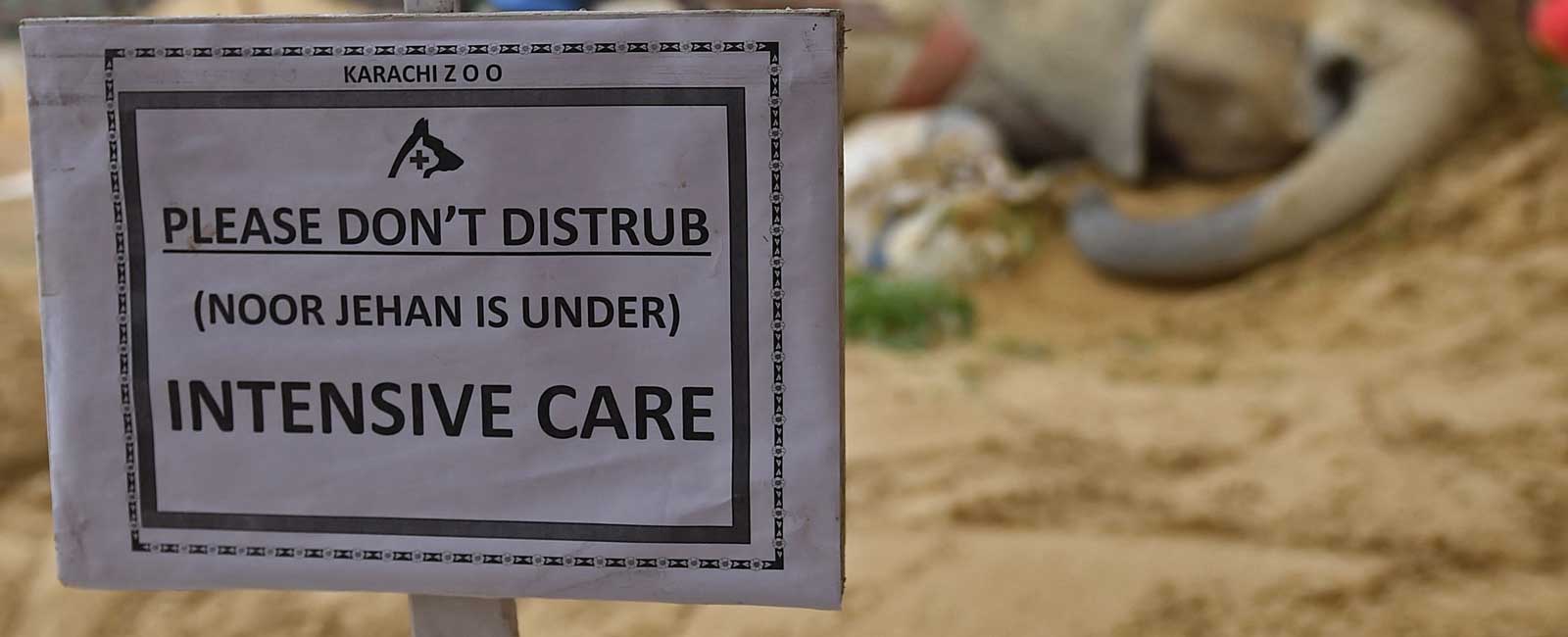Should zoos be allowed to continue failing 'Noor Jehans' in Pakistan?
There should be a complete ban on acquiring animals through dealers, it is a sin to attach a price tag to endangered species

The tragic death of a 17-year-old female African elephant Noor Jehan, a resident of the Karachi Zoo, has shaken and stirred the entire country. I say stirred because while the nation mourns, bonded by sadness; there is also an outcry — discernible anger that has sparked a debate about the future of zoos in Pakistan.
Brought to the Karachi Zoo as a three-year-old vulnerable baby in 2009; Noor Jehan grew up as an orphan on a concrete floor. She was placed in a barren enclosure at a time when she was dependent on her mother for food, love and security. Imagine the cruelty of the network of (mostly illegal) animal dealers.
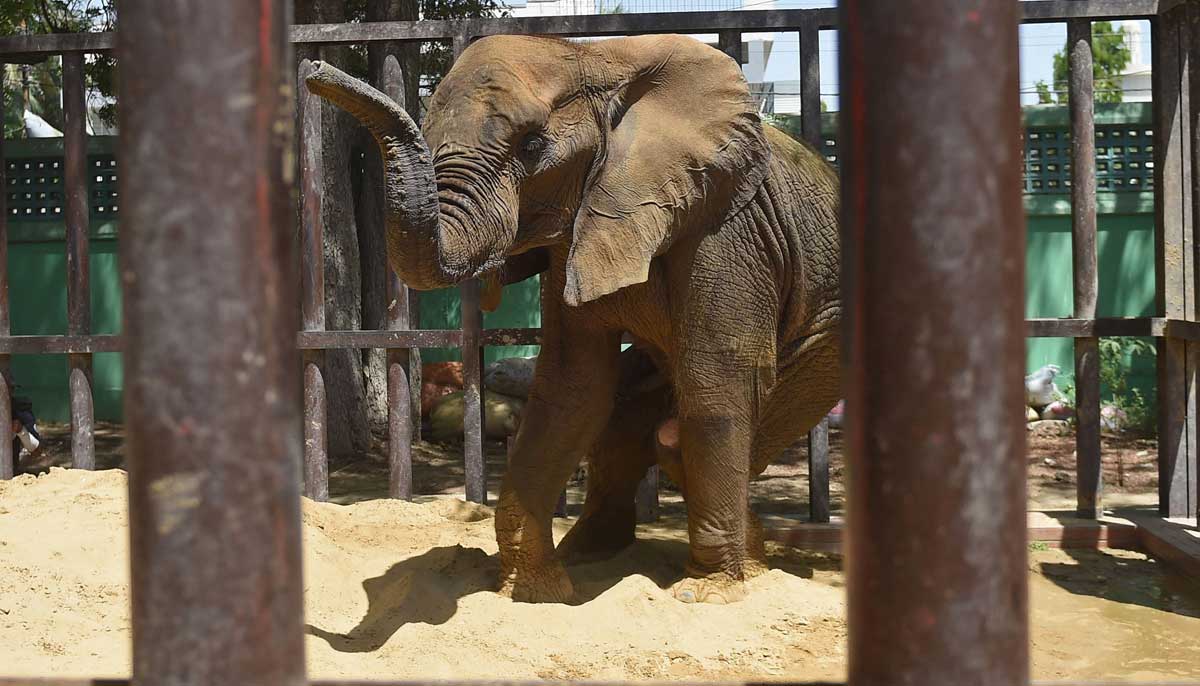
The captive management of elephants is highly controversial and as these are notoriously complex species to be housed in zoos. The requirements of elephants are highly specialised, both ecologically and psychologically. To provide a rough idea, a wild African elephant may walk over 150 km in a day, and radio-collaring studies have shown that elephants have large home ranges, recording 3,000 sq-km in Tsavo East and 10,000 sq-km in Etosha Koakland in Namibia. This walking is usually part of foraging for food and water, and maintains the animal’s health.
Elephants are socially dynamic. A female group is led by a matriarchal female who is the oldest and the most experienced group member. These females bond with each other, and provide reassurance and emotional support to each other, just like us, and the absence of this social structure causes distress in elephants.
Confinement in a zoo, usually on a hard, concrete floor, with restricted access to outdoor areas, leads to various health problems in these animals including arthritis and foot problems. Coupled with a high sugar and low fibre diet typically fed to them, elephants tend to suffer from other health issues, including heart problems, diabetes etc.
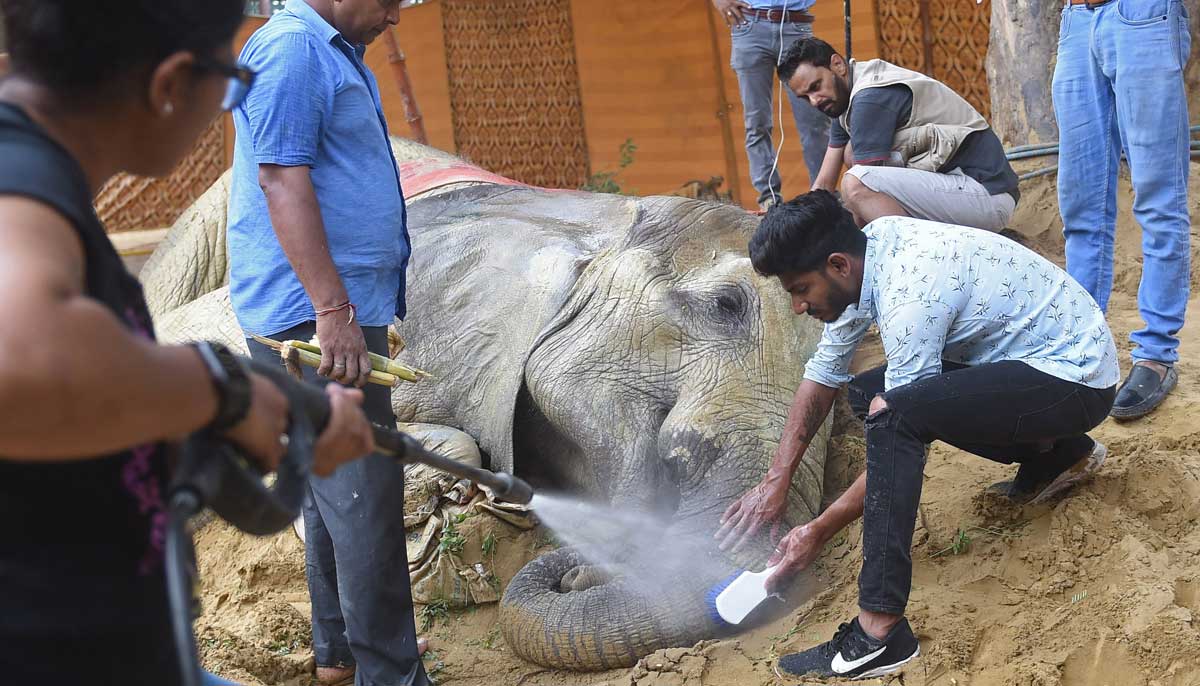
Moreover, elephants display numerous abnormal behaviours because of the stressful and unstimulating zoo environment, for example, repetitive swaying and head bobbing. Globally, zoos have phased out elephants (e.g. London Zoo) and those that keep them (e.g. Twycross Zoo, Whipsnade Zoo) house them in large enclosures in appropriate social groups to meet both their physical and social requirements.
It is a well-known fact that elephants are majestic creatures that only belong in the wild, and not in zoos. Unfortunately, Pakistan has a long history of mismanaging these incredible animals, and the stories of their mistreatment are heart-wrenching.
From Kaavan, the 35-year-old Asian bull who was relocated to Cambodia in 2022, to Suzi, the female African elephant that passed away at Lahore Zoo in 2017; our zoos have failed these magnificent beings. Saheli, the female Asian elephant at Islamabad Zoo, also met a tragic end in 2012, while Anarkali, an Asian elephant at Karachi Zoo, lived her life in solitary confinement before passing away in 2006 at the age of 70.
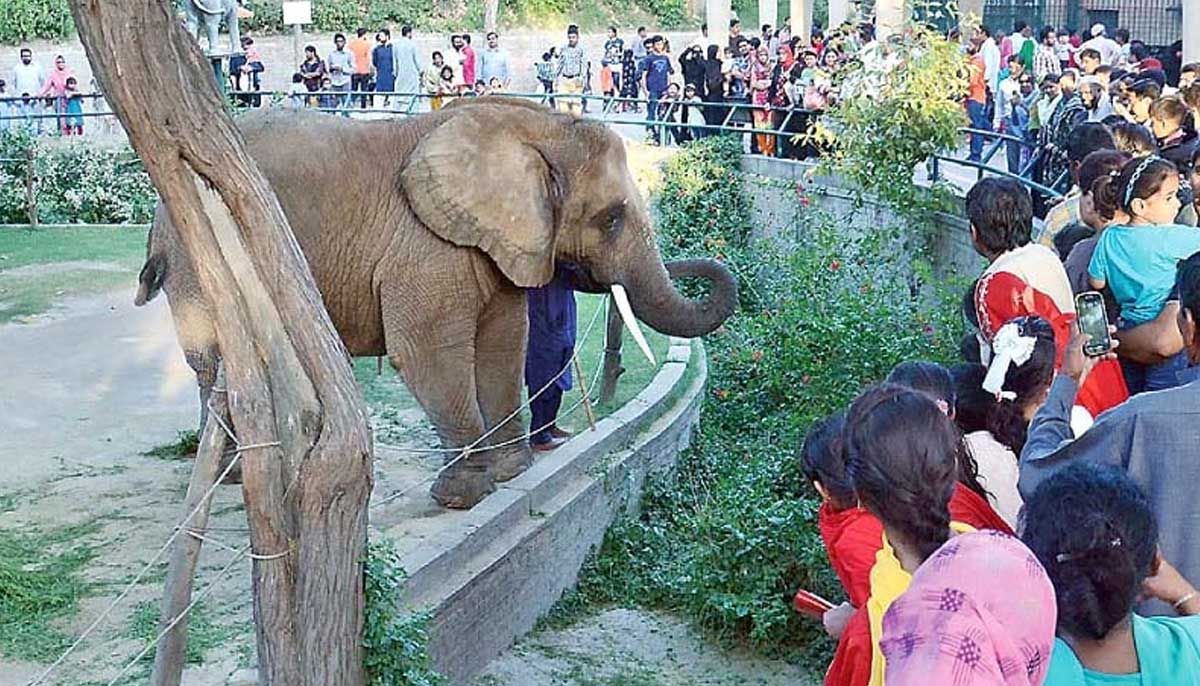
Certainly, we should not have elephants in our zoos and we should pledge never to acquire more and never to give in to public or media pressure for a zoo to have an elephant. Instead, our zoos need to tell the stories of all these elephants and their sufferings as part of a responsible zoo education programme to make people understand why certain species cannot be kept in zoos.
Now the burning question that lingers in our minds is, where do we go from here? There is undoubtedly anger manifesting itself in a demand to shut down all the zoos in Pakistan, and understandably so. While this may be warranted as an initial reaction, it is not a practical solution. Instead, we need to veer focus towards improving their management and building adequate human resource.
Globally zoos have contributed tremendously to species conservation, not just through breeding but also through funding conservation projects in the wild. The knowledge acquired from zoos has helped in managing endangered species. One of the main objectives of a zoo is to educate the public about larger conservation issues and to bring about a behavioural change in society to take responsible actions. However, suffering animals housed under poor welfare conditions cannot educate the masses.
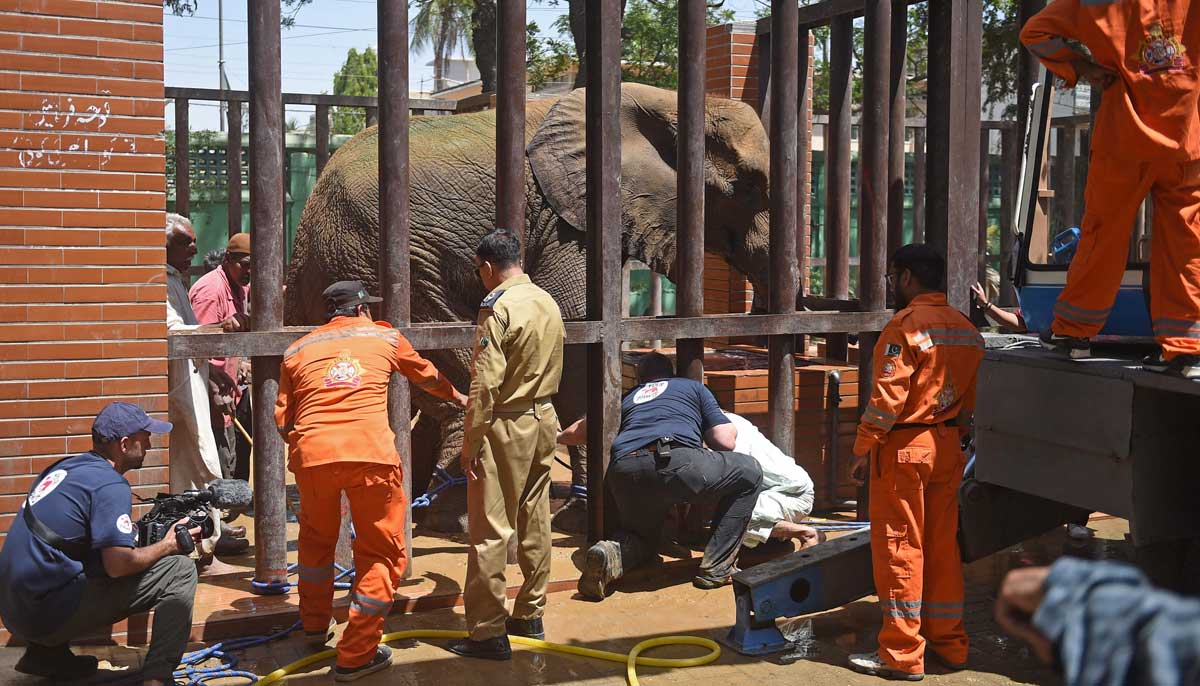
As an immediate action, we must prioritise the well-being of the enclosure mate of Noor Jehan — Madhubala, and offer her enrichments, which can include old tyres and barrels, and acacia branches to browse. At the same time, we must assess the suitability of introducing her to the other elephants at the Karachi Safari Park.
In the broader context, we need to improve all zoos and realise that a visit to a zoo is a collective experience of wildlife, beautiful gardens and the rich history that some of the oldest zoos in the world (Lahore Zoo and Karachi Zoo) can offer along with good food and awareness. Visitors pay for this experience where the focus is not on a menagerie, but on wildlife in naturalistic enclosures and on showcasing their natural behaviour, or at least giving them the opportunity to practice their natural behaviour.
The Ministry of Climate Change (MoCC) needs to set up a central zoo monitoring unit in collaboration with the provinces and nominate an independent body of experts to conduct an assessment of zoos throughout the country, both private and government-operated. This assessment can be carried out using detailed forms and should identify those zoos that cannot be sustained either because of inadequate capacity or limited resources.
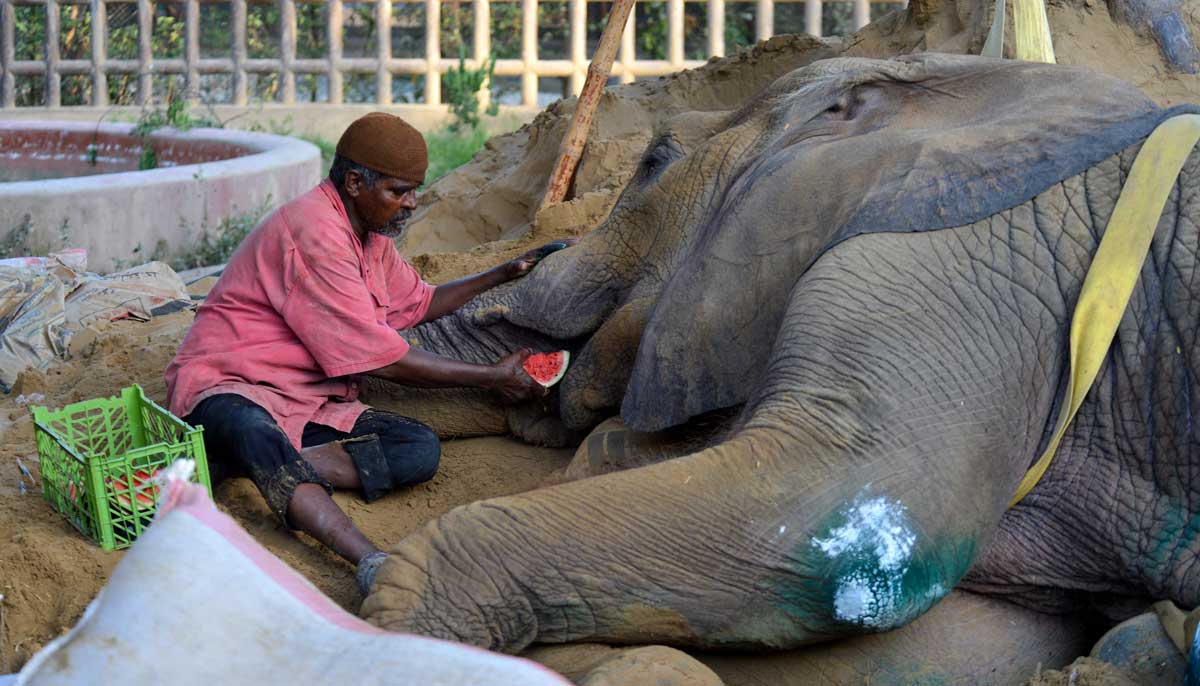
If budgets cannot be allocated to improve them, such zoos should be closed down and the relocation of animals to other appropriate facilities should be considered. If a budget is allocated, then a timeframe should also be defined to improve the facilities. This does not necessarily mean adding fancy infrastructure but refers more to adding appropriate furniture and providing enrichments that promote animal well-being and correct social grouping.
These improvements are not difficult to achieve and need to be part of regular husbandry practices. In zoo management, it must be kept in mind that bigger is not always better, and an enclosure needs to be interesting and stimulating for an animal, in accordance with its needs. A big cat could still be pacing in one corner of a large enclosure if the space is barren and offers no enrichment.
The ministry and each province need to bring in zoo standards, like most countries, and compliance with the same can be ensured through regular inspections conducted by a panel of experts from an independent body.
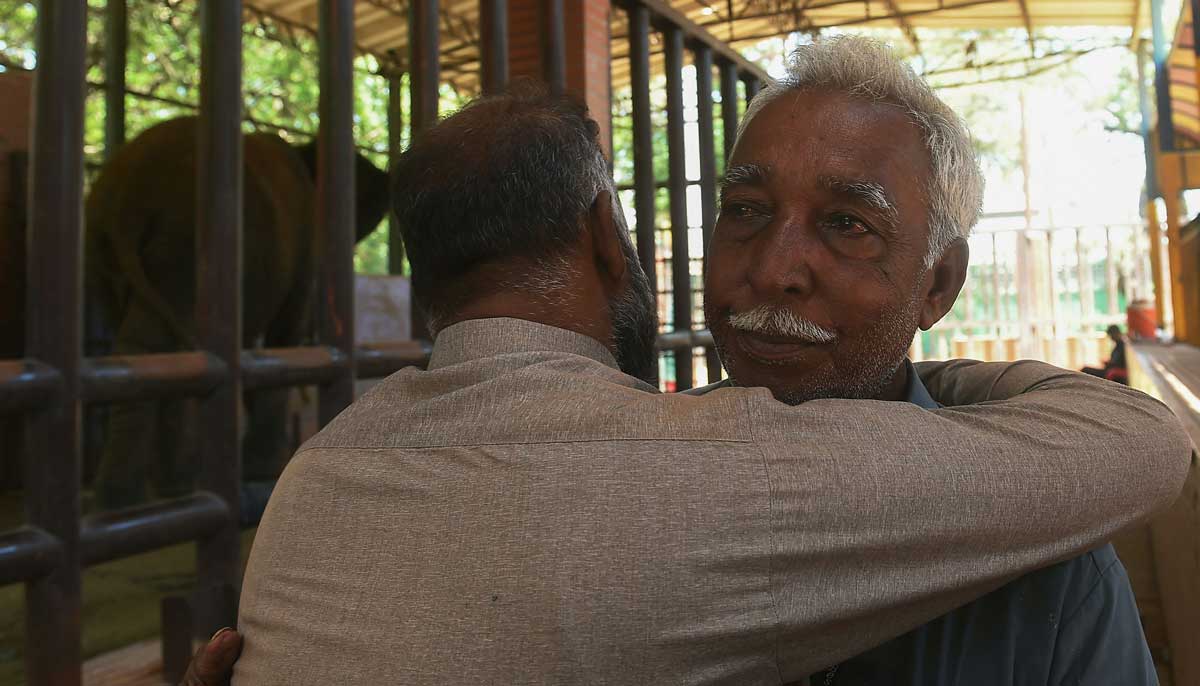
Each zoo must also have a comprehensive education programme which includes meaningful, visually appealing, and interactive signage for awareness; a full-time education officer; a special programme for school groups etc.
There must be an animal collection plan, which details what is appropriate to house, how many, and what climate, space, resources and capacity are required. A zoo management committee/board with civil society representatives must be made mandatory for all zoos.
Further, we need to make our zoos to be financially self-sustaining. With over 3 million annual visitors to some of the country’s more popular zoos, our zoos hold tremendous potential in generating their own resources and funds required to make the above-mentioned incremental improvements.
An adult ticket to the Karachi Zoo is a mere Rs30, which requires immediate revision, while Lahore Zoo is marginally better with an entrance ticket price of Rs70. The gate income, along with the money generated through various contracts, should be maintained in a separate zoo bank account, independent of the government pool.
There should be a complete ban on acquiring animals through dealers, it is a sin to attach a price tag to endangered species. While our zoos regularly sell and purchase animals as ‘tender items’ following Public Procurement Regulatory Authority (PPRA) rules, it is quite ironic for the guardians of wildlife to deal in wildlife.
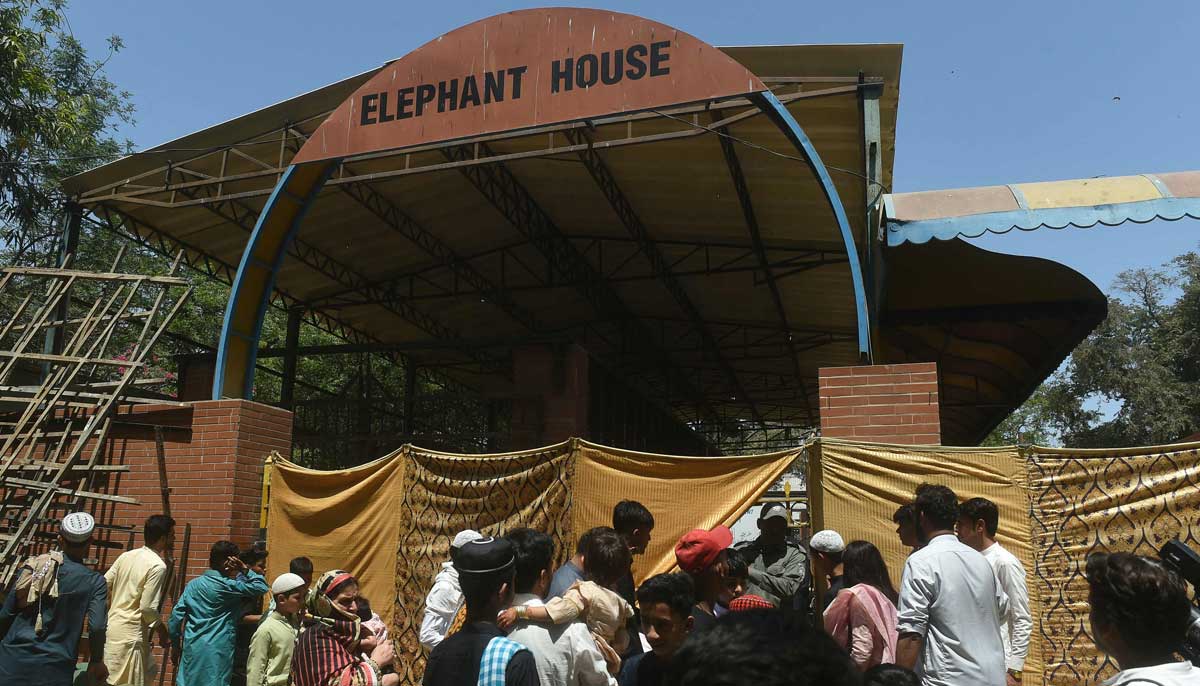
Another area that requires attention is investment in people — especially those at the frontline, including zookeepers, who interact with the animals on a daily basis and are usually the first ones to report unusual behaviour. There is no doubt that capacity building is required at all stages, with keen attention to improving veterinary facilities.
Our zoos need to connect with each other and to the global zoo community, there is no room to work in isolation in today’s digital world. This will help in learning, building collaboration and fostering the exchange of knowledge and animals.
The MoCC must form a "Pakistan Zoo Association" with a chair rotating between different zoos across provinces, and the Association should aim to become a member of the World Association of Zoos and Aquaria (WAZA).
Implementing these improvements comes with its share of financial implications, but if we want to keep our zoos, we will need to take steps in the right direction, otherwise, we risk the closure of zoos altogether.
Dr Uzma Khan is a wildlife expert at WWF Pakistan. She tweets @commonleapardo
— Thumbnail and banner image by AFP



